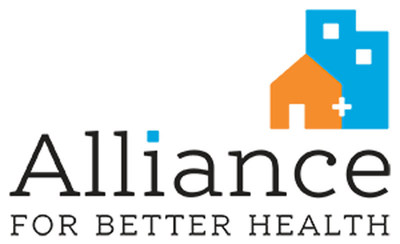SDoH Advocate Lori Petersen Joins SIREN Gravity Project Development Team

TROY, N.Y., May 2, 2019 /PRNewswire/ — Alliance for Better Health, engaging medical and social service providers in promoting the health of people and communities, today announced that senior business analyst Lori Petersen, a vocal advocate for improving how social determinants of health (SDoH) contribute to health decisions, has joined the SIREN Gravity Project as a committed member of the development team.

Petersen’s expertise in analytics, as well as her passion for using our understanding of SDoH to gain a deeper understanding of the barriers to better health facing many of America’s most vulnerable citizens, will be invaluable in the Project’s mission of expanding the use of a clinical common data set including ICD-10 Z codes to share more complete information about and track outcomes of social interventions. She will work with the development team on the delivery of use cases that inform a standardized terminology set to improve the specificity and interoperability of Z codes in daily use.
The SIREN Gravity Project, funded by the Robert Wood Johnson Foundation in partnership with EMI Advisors LLC, and led by the Social Interventions Research and Evaluation Network (SIREN) out of the University of California, San Francisco, is focused on the development of a documentation standard using existing HL7 technology to capture social needs as part of an individual’s overall health record. One of its overriding goals is to create greater specificity in coding to help providers and social care delivery organizations address concerns more accurately.
For example, food insecurity is currently covered under a single code, Z59.4. But there can be many disparate causes for food insecurity, such as a lack of money to purchase food or a lack of healthy food choices in the neighborhood, that require different solutions from different social care delivery organizations. By expanding the choices within the ICD-10 coding system, providers can use the code that best describes the patient’s circumstances so the most appropriate intervention can be implemented.
“It is great that social determinants of health have come to the fore in healthcare in the last few years, but we have only scratched the surface of addressing them,” said Petersen. “What’s important now is that we don’t repeat the mistakes that were made initially with electronic health records, where everyone went their own way in capturing data electronically.”
“The SIREN Gravity Project is designed to solve the clinical documentation challenges to make sure the data is captured and shared using a unified template and within normal clinical workflows,” she continued. “Following that path will make it easier to coordinate interventions with social care delivery organizations as well as to quantify the outcomes and ROI of those interventions, which is critical as health care payment continues to move from volume to value. I’m excited to have the opportunity to influence the development and growth of Z codes so we can continue the great work that’s already been started.”
Alliance for Better Health is involved in the SIREN Gravity Project which kicks off on May 2, 2019 and runs through December 2019. The project will focus on three social domains: food insecurity, housing instability, and transportation.
The SIREN Gravity Project builds on two other recent, independent efforts to improve and expand the use of Z codes through submissions to the ICD-10 Coordination and Maintenance Committee in their March 2019 meeting. UnitedHealthcare submitted new codes related to employment, income, and social environment, while Blue Cross and Blue Shield of Vermont proposed more refined and descriptive codes for food insecurity. Both proposals are out for public comment until May 10, 2019.
“Managing social factors well requires a group effort and tremendous coordination between medical and social services providers,” said Jacob Reider MD, CEO of Alliance for Better Health. “As a result, making it easy to share information between all parties involved in an individual’s path to health is imperative if we’re going to address the underlying health challenges. No one understands how the technical and human sides interact better than Lori Petersen. We are proud to have her as our voice in SIREN Gravity Project.”
For more information about Alliance for Better Health’s mission please visit http://www.abhealth.us
About Alliance for Better Health
Alliance for Better Health engages medical and social service providers in developing innovative solutions to promote the health of people and communities, with a goal of transforming the care delivery system into one that incentivizes health and prevention. Established in 2015 as a Performing Provider System in the New York State Delivery System Reform Incentive Payment (DSRIP) program, Alliance partners with more than 2,000 providers and organizations across a six- county area in New York’s Tech Valley and Capital Region.
Media Contact:
Linda Healan
Amendola Communications
404.725.7117
lhealan@acmarketingpr.com
View original content to download multimedia:http://www.prnewswire.com/news-releases/sdoh-advocate-lori-petersen-joins-siren-gravity-project-development-team-300842434.html
SOURCE Alliance for Better Health
